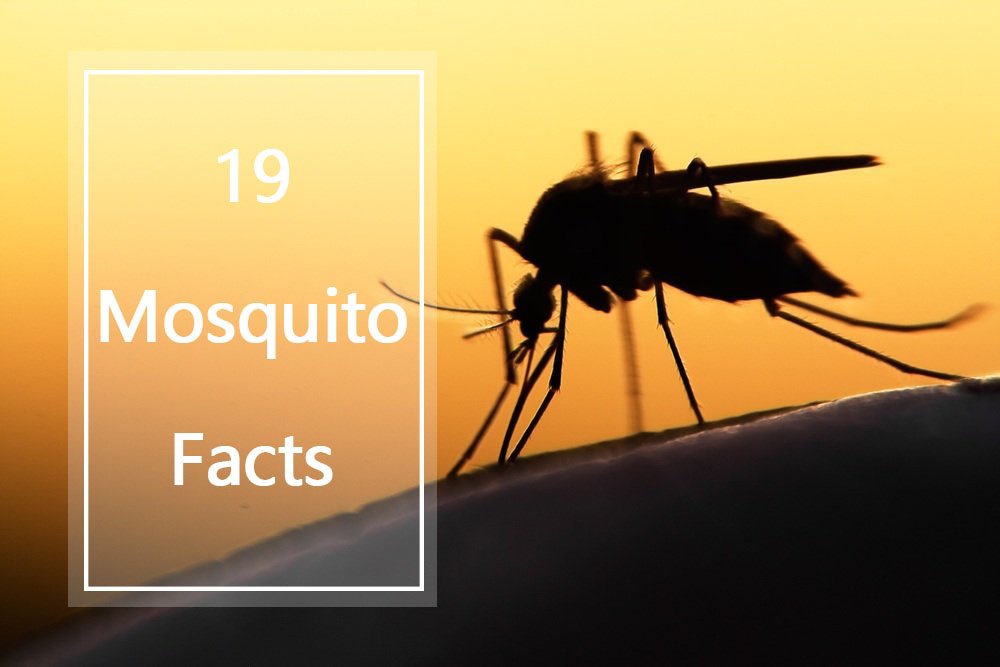Mosquitoes are one of the most hated insects in the world. These pests feed on blood, and they transmit diseases, too. In developing countries, there always seems to be new mosquito virus outbreaks that lead to countless deaths.
Knowing more about these pests can help you combat them.
We’re going to discuss mosquito facts and questions that can help you educate yourself on these often-deadly pests.
Table of Contents
- 19 Mosquito Facts You Need to Know
- 1. Do Mosquitoes Have a Purpose?
- 2. Do All Mosquitoes Bother Humans?
- 3. What’s the Lifecycle of a Mosquito?
- 4. Do Mosquitoes Migrate?
- 5. What Are Mosquitoes Attracted To?
- 6. Are Mosquitoes Attracted to Light?
- 7. What Mosquitoes Carry Zika?
- 8. When Do Mosquitoes Go Away?
- 9. When Do Mosquitoes Come Out?
- 10. When Are Mosquitoes Most Active?
- 11. What Bugs Eat Mosquitoes?
- 12. What Fish Eat Mosquitoes?
- 13. Why Are Mosquitoes Attracted to Blood?
- 14. How High and Fast Can a Mosquito Fly?
- 15. Can We Eradicate Mosquitoes?
- 16. What Diseases Do Mosquitoes Spread?
- 17. Do Mosquito Repellent Apps Work?
- 18. What Do Mosquitoes Look Like?
- 19. What Can I Do to Get Rid of Mosquitoes?
19 Mosquito Facts You Need to Know
1. Do Mosquitoes Have a Purpose?
Why do mosquitoes exist? A lot of people assume that there’s no reason for mosquitoes aside from being a perpetual pest and threat to humanity. But there is a deeper reason for the mosquito, or so scientists believe.
These pests play an important role in the ecosystem.
What are mosquitoes good for? In the arctic tundra, these pests play a role in the food cycle. Scientists believe that migratory birds will feast on the mosquitoes. There’s also evidence that caribou will alter their routes to avoid mosquitoes, and this also leads to a moving of wildlife that eats caribou.
Fish have been shown to eat mosquito larvae.
There are a variety of lizards and reptiles that eat mosquitoes, too.
2. Do All Mosquitoes Bother Humans?
Mosquitoes can be found across the world, but there are only 200 of nearly 3,500 species of mosquitoes that bother humans. So, while it may seem like every mosquito on the planet is feasting on you while you’re walking near a pond, this isn’t true.
3. What’s the Lifecycle of a Mosquito?
Mosquitoes are flies – or a type of fly. The mosquito life cycle will revolve around a traditional four-cycle lifecycle. All species of mosquito will start as mosquito eggs. The female mosquito will lay her eggs in or near stagnant water.
When laid in the water, they provide a food source for aquatic life.
One interesting mosquito fact is that every species will have its own water preference for laying eggs. Some will lay eggs wherever they can, while others will breed in lakes and others lay their eggs in small puddles of water.
Mosquito eggs can be everywhere.
The remaining three parts of the lifecycle include:
- Larva: The larva stage is before the mosquito goes into the metamorphosis stage. This is a stage that all fliers undergo. Called “wriggler,” these small larvae will molt numerous times and live in the water.
- Pupa: “Tumbler’ is the better name for this stage. This is a stage where the mosquito doesn’t eat. This stage is in preparation for the adult stage.
- Adult: During the pupa stage, the mosquito starts to transform into an adult, where their body parts have hardened and they’re not able to emerge from the water and fly.
Female mosquitoes must first obtain a “blood meal” before she can lay her eggs. This meal is the blood from animals or humans. Eggs can survive dry conditions for days, but they’ll need to be exposed to water before they hatch.
The entire lifecycle takes 2 weeks on average to complete, but conditions can make the lifecycle last 4 days to a month on average.
Whether you have a giant mosquito or you’re dealing with the Asian tiger mosquito, they all go through this four-stage lifecycle.
4. Do Mosquitoes Migrate?
Yes. Mosquitoes are known to migrate up to 100 miles in rare circumstances. This distance may not seem exceptional, but it’s often far enough for the mosquito to travel to life if a rare snowstorm occurs.
The migration of 20 – 40 miles is more common.
Due to their lighter weight, wind storms can cause these fliers to be thrown far distances whether they want to migrate or not.
Breeding can cause migration, too. This is found with large pool breeding, and mosquitoes have been shown to migrate as far as seven miles to breed.
Then there is the Asian Tiger Mosquito, which couldn’t migrate long distances if it tried. This poor mosquito can only fly for about 300 feet at a time before needing to stop. When compared to the average mosquito, which can fly 1 – 3 miles at a time, this is a very slow pace.
One also needs to consider that most mosquitoes only live for 2 – 3 weeks as adults before they die.
Since they have a slower traveling speed, this means some of these fliers will remain in transit for migration for a good portion of their lives. Given the right conditions, often in a garage or attic, a mosquito can live up to 6 months, but this isn’t the norm.
5. What Are Mosquitoes Attracted To?
Water is a big draw for mosquitoes. When you go outside after a rain storm, you’ll often find many of these pests flying about. This has a lot to do with the rain and standing water that allows for the perfect environment to lay eggs.
Hot and humid temperatures attract mosquitoes, and they like quite a few things:
- Carbon Dioxide: A steady output of carbon dioxide is why these pests track a person down to bite. So, if you’re running by a standing pond and hear a mosquito sound, it could be that you’re breathing heavier than normal due to exertion, which attracts them to you.
- Body Heat: Higher body heat, also from exercise, triggers these fliers. Higher body height is a trigger and will allow the mosquito to find the areas on the body where blood is closest to the surface to mark an easy target to bite.
- Dark Colors: Jeans and a dark shirt make you stand out in the horizon. This is what will attract these pests to you for a feast of blood.
- Alcohol: Beer is a major attractor for mosquitoes. If you don’t believe me, place a beer outside and see how many of these fliers come swarming. When you sweat, they’ll smell this beer on your skin and want to target you come meal time.
There are rumors that certain blood types lure mosquitoes in more than others, too.
6. Are Mosquitoes Attracted to Light?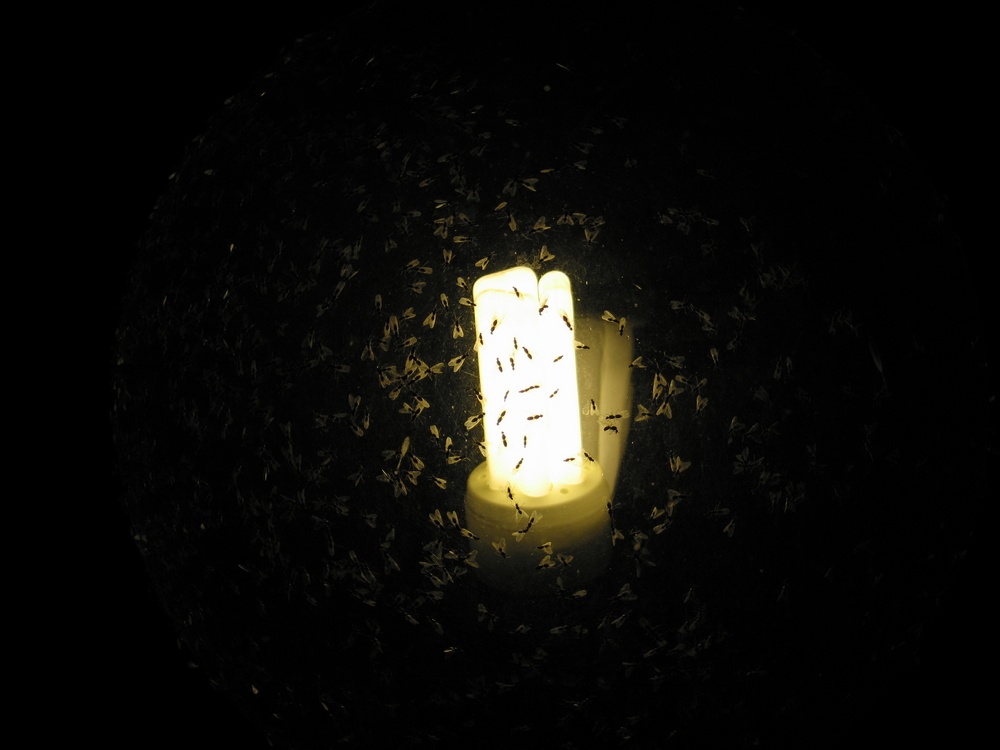
It depends. When a male mosquito is flying around, he’ll be attracted to whiter lights. The reason for mosquitoes liking light is that their eyesight is poor, so they need light to help them hunt and see.
There are numerous lights that aim to repel mosquitoes away.
An umbrella net may be used along with a light to attract and catch these pests. Outdoor mosquito netting is used to help curb the transmission of diseases by bites because they keep the mosquito away from humans.
7. What Mosquitoes Carry Zika?
You might assume that all mosquitoes can spread the Zika virus, and the news does a good job of not differentiating between the many types of mosquitoes that fly about. The most common culprit for transmission is the Aedes aegypti or Aedes albopictus mosquito.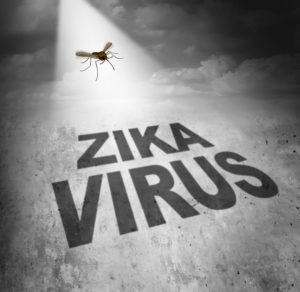
These mosquitoes live in tropical, subtropical and temperate climates in some cases.
Can a pregnant woman transmit the Zika virus to the fetus?
Yes. The transmission can occur during the birthing period or slowly after.
Can a person transmit the Zika virus during sex?
Yes. The virus can spread through blood, too, so blood transfusions are also a culprit.
One common myth is that mosquitoes that only fly during the day can transmit the virus, but a recent report by the CDC states that this is false. Whether it’s daytime or nighttime, the virus can be spread.
8. When Do Mosquitoes Go Away?
This depends on your location. Mosquitoes thrive in tropical areas, and there are areas where they’ll buzz around all year long. If you live in a region where it gets cold in the winter, you’ll notice that they tapper off in the fall and will die in the winter months.
It takes a good freeze before mosquitoes go away.
Temperatures need to be below 50F for these pests to stay away for good following the freeze. In states such as Hawaii, the population of mosquitoes may decline, but they’re always present to some extent.
9. When Do Mosquitoes Come Out?
If you’re interested in the mosquito season, you’ll need to look for a specific season in your region. There isn’t a specific day of the year when these pests come out. Mosquitoes rely on the weather to determine when their season starts or ends.
Eggs begin to hatch and any mosquitoes that go into hibernation will emerge when spring weather arrives.
If the temperatures are above 50 degrees, you’ll have a good chance of seeing a mosquito flying about. The season will reach its peak in the summer months when the temperatures are favorable for mosquito survival.
In the most southern regions of the United States, such as Miami and the lower portion of Texas, the mosquito season can last from February to November. In the middle of the country, the season lasts from April to September in most cases.
The top portion of the country has a shorter season that ranges from May to August.
10. When Are Mosquitoes Most Active?
Mosquitoes are most active in the summer months when the weather is hot. In regions where the summer is long-lasting or temperatures are often hot, the mosquito may be around in full force all year long.
11. What Bugs Eat Mosquitoes?
We talked about mosquito-eating fish, but there are also bugs that eat mosquitoes. Mosquito predators can include:
- Bats
- Birds
- Fish
- Frogs
- Turtles
And of course, bugs will also eat mosquitoes. Dragonflies are often called “mosquito hawks” because they will hunt down and eat these pests. During the dragonfly’s aquatic stage, they’ll often b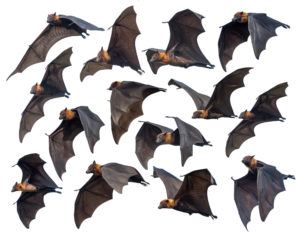 e found eating mosquito larvae.
e found eating mosquito larvae.
Damselflies also consume the larvae of mosquitoes during their aquatic stage.
One of the most interesting mosquito facts is that the predacious mosquito will eat other mosquitoes. What’s even more interesting is that even the larvae of this species will eat the larvae of other mosquito species. Adults will also eat pupae and larvae.
Spiders are the final bug on the list that eats mosquitoes. If one of these bugs flies into a spider’s web, they’ll quickly encase their victim and eat them.
12. What Fish Eat Mosquitoes?
Since a mosquito nest of larvae will be in the water in some cases, fish will hunt them down and eat them. This is a great source of food for fish, and they’re one of the most efficient forms of control since the mosquito doesn’t have a defense at this stage.
Catfish, bass, bluegill, goldfish and guppies all prey on larvae.
But there is also what’s called the mosquito fish, or the Gambusia affinis.
The mosquito fish is so efficient at killing these bloodsuckers that they’re used by professional pest control agencies to lower the mosquito population.
13. Why Are Mosquitoes Attracted to Blood?
You may be curious as to why mosquitoes like blood. When they bite you, make no mistake about it: they’re sucking out your blood in the process. And the reason why they need blood is to imbibe blood.
See, the eggs need to mature before they’re laid and can hatch.
Blood helps them mature. Nourishment isn’t provided from your blood, and if you’ve been bitten by a mosquito, you can be sure that it’s not a male. Only females feast on blood.
When the female doesn’t need blood for her eggs, she’ll be found eating pollen just as a bee does. This is the primary food source of a mosquito.
14. How High and Fast Can a Mosquito Fly?
If you’ve ever tried to outrun a mosquito, chances are you know that they’re not extremely fast. Depending on the species, these pests can only fly 1 – 1.5 miles per hour, and this is a little slower than the average human’s walking speed.
If you were to sprint forward, there is little chance that these fliers would be able to catch up to you.
Most mosquitoes fly at a height of 25-feet or less – this is their comfort zone. You’ll find that the Asian Tiger Mosquito can breed over 40 feet in the air. But it seems that their traits and height vary, depending on where in the world they live.
In India, for example, workers found these pests breeding 2,000 feet underground.
There have also been reports of these bugs breeding 8,000 feet in the air in the Himalaya mountains. While these fliers don’t spend their time at such extreme heights, in the most difficult situations, they will do whatever they can to breed.
And if this means flying to the colder temperatures 8,000 feet in the air, then so be it.
15. Can We Eradicate Mosquitoes?
If you wanted to eradicate mosquitoes, the world would survive. There is a high likelihood that the ecosystem will change following the eradication, but other bugs would fill the void. The issue is that these pests are highly resilient, as mentioned previously.
And killing every last mosquito would be nearly impossible.
So, while the mosquito eradication idea would stop the spread of many diseases, there would still be plenty around to continue pestering humanity.
16. What Diseases Do Mosquitoes Spread?
The Zika virus is the main concern in the current era, and this is because humans haven’t found a way to control it. There are other viruses that can be spread, too, including:
- Dengue
- Japanese and LaCrosse encephalitis
- Malaria
- Yellow Fever
- St. Louis encephalitis
- Rift Valley fever
- Chikungunya
These viruses and parasites are the most common ones that the mosquito transmits, but they’re not the only ones.
17. Do Mosquito Repellent Apps Work?
Have you seen the anti-mosquito app? If so, you’re probably wondering if these apps work. They state that they emit a sound that only mosquitoes can hear and keeps them at bay. The debate on whether these apps work or not is still ongoing.
There seems to be no middle ground.
Some users state that it works with a pure 5-star rating, while others say it only works to drain a phone’s battery and spam the user with ads.
18. What Do Mosquitoes Look Like?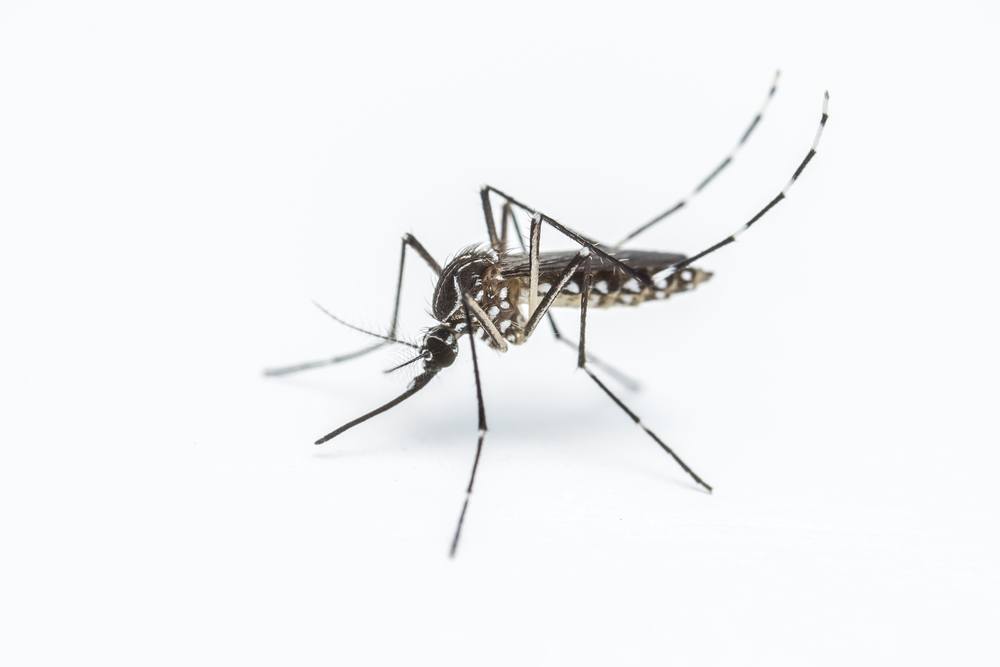

One of the more interesting mosquito facts is that whether dealing with the striped mosquito, black and white mosquito, or any other type of mosquito, they all have one pair of scaled wings and a pair of halters.
Pictures of mosquito will provide you with a better visual than anything written on a page.
But they do have long legs with a slender body. They appear to be fragile, but these fliers have hardened bodies and are very resilient. The weight of these bugs is 2.5 mg or less, and the length of most mosquitoes is 15 mm or less.
The length will vary from species to species.
19. What Can I Do to Get Rid of Mosquitoes?
If you’ve seen the mosquito meme where the mosquito bites for no reason, you’ll want to know how to get rid of them. Pest control is the best choice, but you can also install a patio mosquito net or plant citrosa.
Citrosa is a plant that emits the smell of citronella and is known to repel mosquitoes.
Commercial products and homemade remedies are also available to get rid of mosquitoes.
